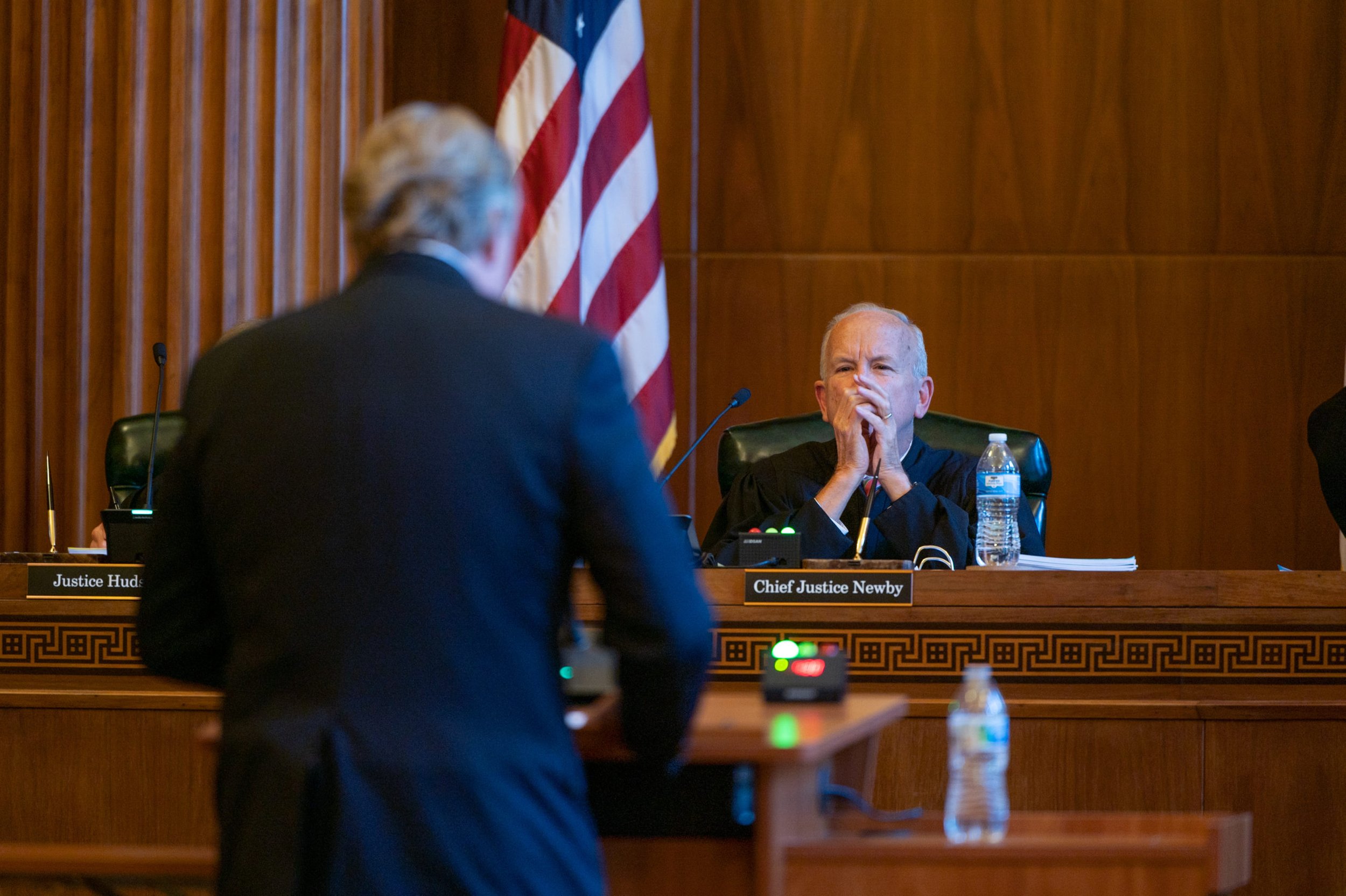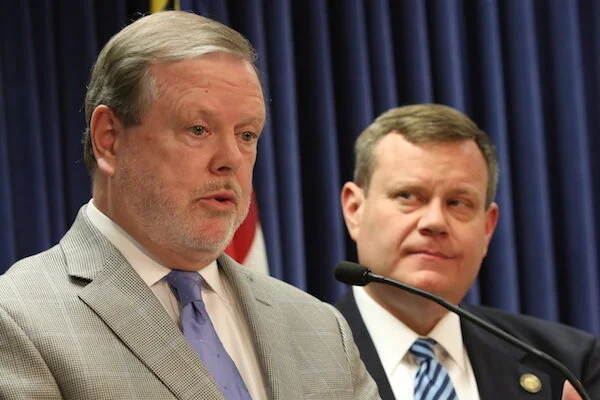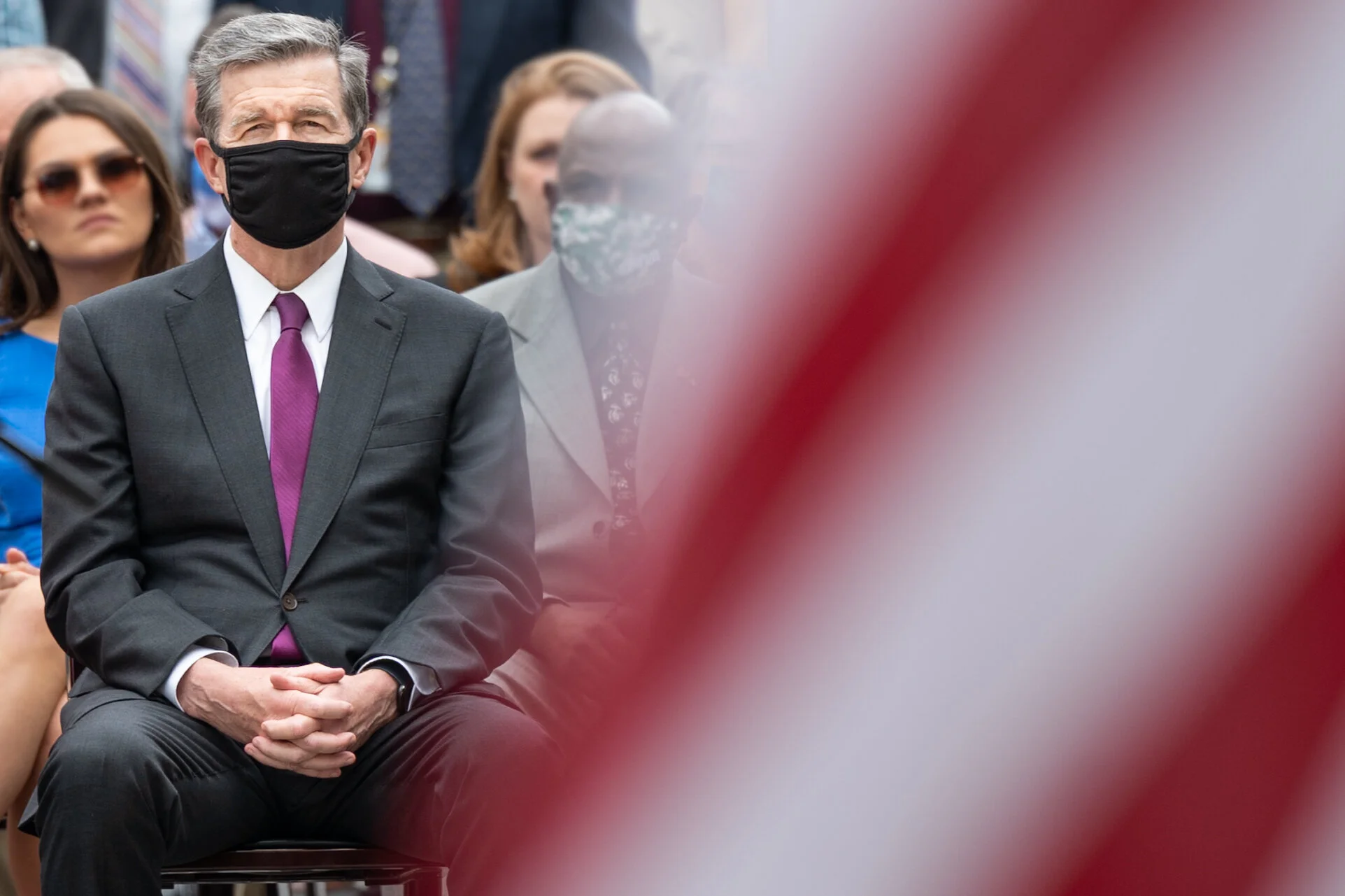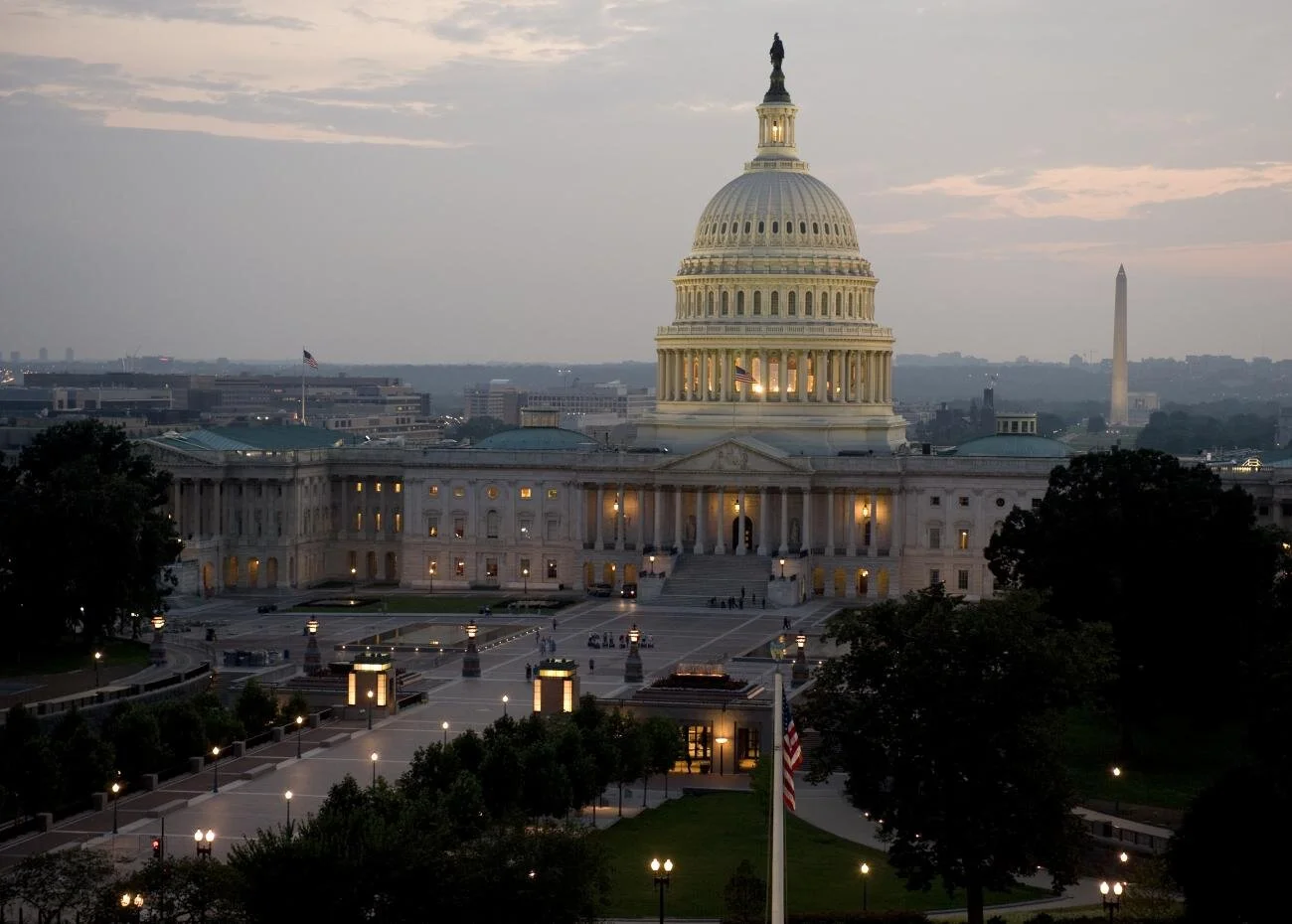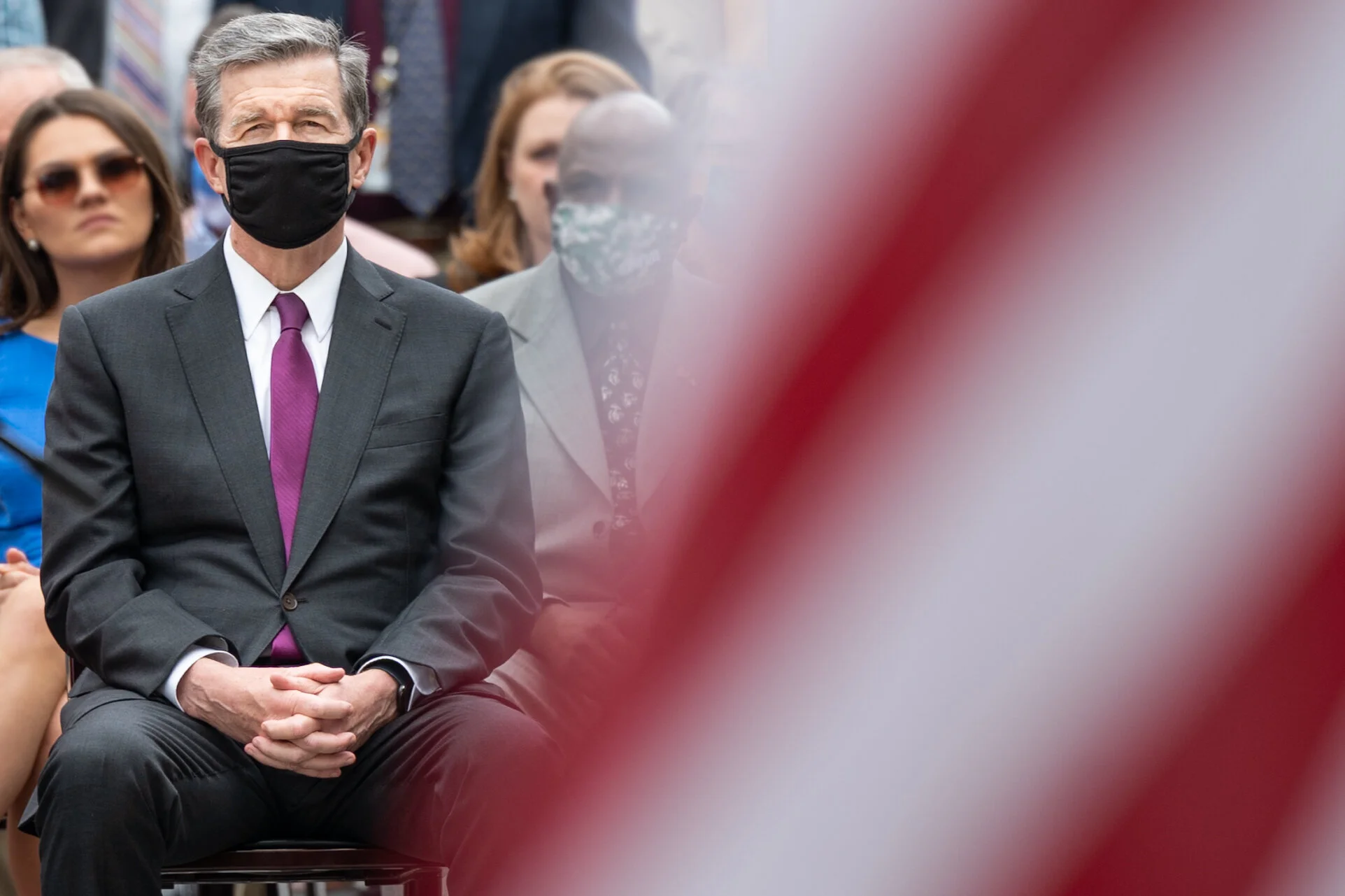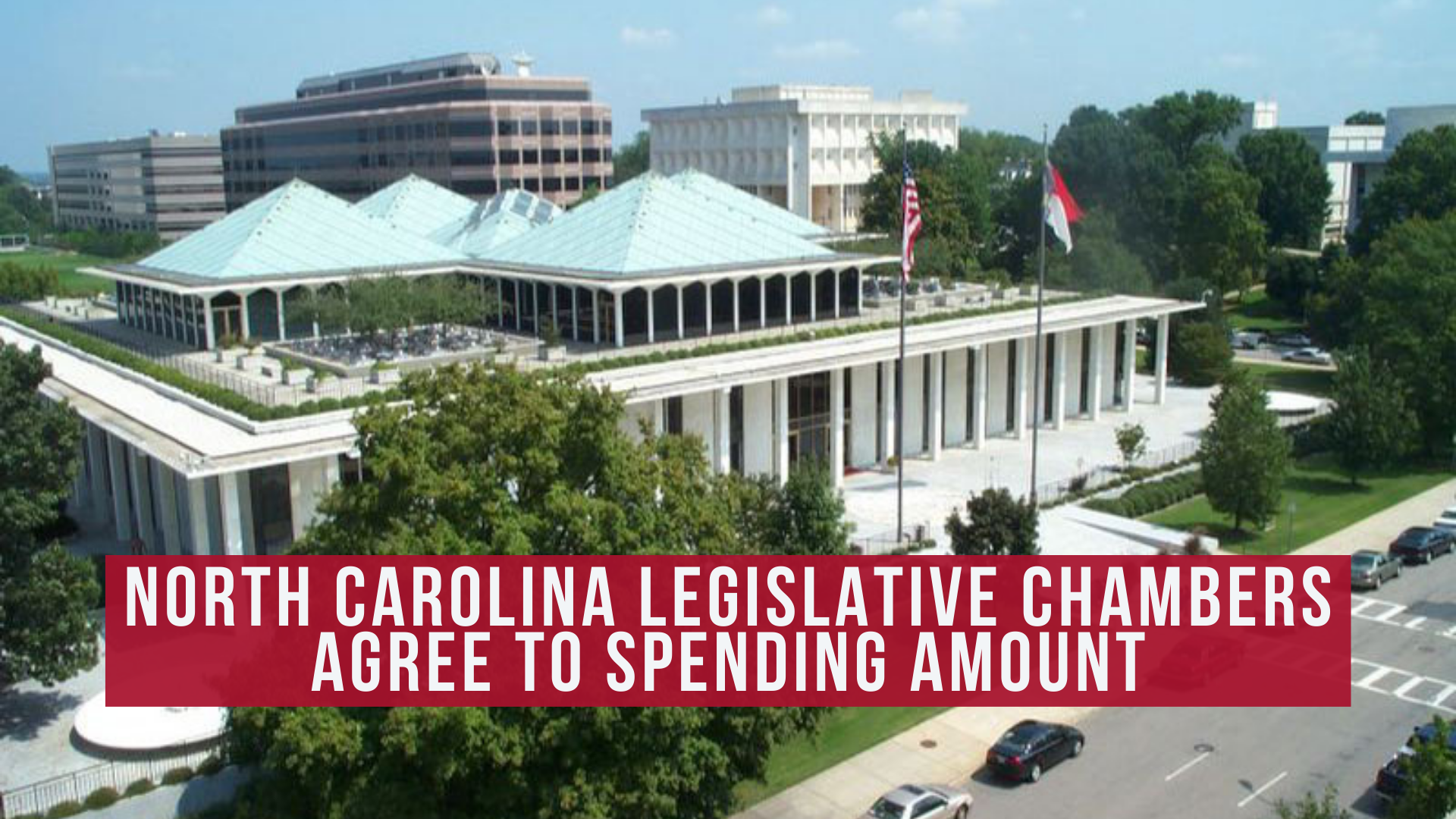A controversial environmental program controlled by North Carolina's attorney general and funded by hog farm proceeds returned today to the N.C. Supreme Court. The court must decide whether the AG can maintain control of the funding moving forward.
All tagged budget
Where does North Carolina stand on the budget?
As legislative members prepare for another week of redistricting committee meetings and budget talks, North Carolina is more than three months into the new fiscal year. The state still does not have a budget in place. Both the House and Senate have passed their versions but there is a new aspect of the process that hopefully Governor Roy Cooper will agree to so that a new budget will be passed by his administration.
Yes, government can be shrunk
I’ve been spending a lot of time recently in conversation with right-leaning leaders, policy experts, donors, and activists. My purpose is to assess the health and trajectory of American conservatism at this critical moment.
State auditor says NCDOT has yet to develop trustworthy spending plan
The N.C. Department of Transportation continues to be under the watchful eye of the state auditor, who in a report released this week says that department failed to exceed its developed spending plan only by pure luck.
Cooper wants budget provisions removed that would curb a governor's powers
Gov. Roy Cooper wants a provision to curb a governor’s powers removed from state budget plans. Cooper, a Democrat, responding to a question during a press conference Wednesday, Aug. 18, said he plans to talk with Senate leader Phil Berger, R-Rockingham, as well as House Speaker Tim Moore, R-Cleveland, about his concerns.
House budget passes with bipartisan support
The House budget passed its third and final reading in a bipartisan vote Thursday afternoon, shining a spotlight on infrastructure, growth, and innovative projects to propel the state forward.
Congress seeks to cut $40 million from charter schools, impose new regulations
The U.S. House Appropriations Committee voted to cut $40 million from the federal Charter Schools Program, in a major policy shift away from the bipartisan support that charter schools have enjoyed in recent years.
Powering the future of North Carolina
Gov. Roy Cooper earlier this month signed an executive order prioritizing offshore wind energy as part of his administration’s Clean Energy Plan, which is focused on renewables to achieve goals such as reducing emissions by 70% by 2030.
Cooper vetoes bill banning abortions based on race, Down syndrome
Gov. Roy Cooper has vetoed a bill to ban abortions based on an unborn child's race or the presence of Down syndrome. It's his second veto in a week and third overall this year.
Checks on governor’s emergency powers Included in Senate budget proposal
The N.C. Senate passed the body's state budget plan Friday by a vote of 32-18, with four Democrats joining all Republicans in supporting the plan. Sens. Ben Clark, D-Cumberland, Kirk DeViere, D-Cumberland, Paul Lowe, D-Forsyth, and Don Davis, D-Greene, supported the Senate budget.
Senate gives bipartisan 32-18 approval to state budget plan
The N.C. Senate voted Thursday to pass the body’s state budget plan by a vote of 32-18, with four Democrats joining all Republicans in supporting the plan. Sens. Ben Clark, D-Cumberland, Kirk DeViere, D-Cumberland, Paul Lowe, D-Forsyth, and Don Davis, D-Greene, supported the Senate budget.
State Senate to propose 10-year, $12 billion alternative to bond package
State Senate leaders will propose spending $3 billion over the next two years on capital and infrastructure projects. That money is part of a larger 10-year, $12 billion “cash” plan tied to the Senate’s budget.
Senate passes sweeping tax cut package with 8 Democrats on board
The North Carolina Senate passed a Republican-led tax reform package Wednesday evening in a quick, 36-14 vote that drew eight Democrats to cross the aisle and vote in favor of the bill. House Bill 334 would raise the standard deduction from $21,500 to $25,500 for joint filers, which would take about a quarter of a million of the lowest-income North Carolinians entirely off the tax rolls. It also reduces North Carolina’s flat income tax rate for remaining taxpayers from 5.25% to 4.99%.
North Carolina legislative chambers agree to spending amount
With the end of the state’s fiscal year just three weeks away, the N.C. House and Senate have reached a deal for the next budget. After weeks of closed negotiations, N.C. Senate and House leaders have agreed to a top-line spending number of $25.7 billion in the first year and $26.7 in the second year. That’s a spending increase of 3.45% in the first year of the biennium and 3.65% in year two.
House and Senate narrow budget differences, but gap remains
With one month to go before the end of the fiscal year, at the General Assembly lawmakers are hammering out how to budget more than $25 billion in the next state spending plan. Republican leaders in the House and Senate have already agreed to spend significantly less than budget priorities submitted by Gov. Roy Cooper in March.
Cooper’s budget proposal pushes for more spending, Medicaid expansion
Gov. Roy Cooper introduced a $55.9 billion budget proposal on Wednesday, March 24, that includes many of the goals he’s had since taking office. But this time he claims they’re needed due to the COVID pandemic.
Governor Cooper proposes budget to invest in a strong, resilient and ready North Carolina
Governor Roy Cooper released a recommended budget for FY 2021-2023 that will strengthen North Carolina to emerge from the COVID-19 pandemic and ignite recovery for all North Carolinians. The Governor’s plan recommends significant investments in schools and increased pay for teachers, action to strengthen health care access, and expanded economic opportunities and infrastructure investments.
Economists raise outlook for state budget, predicting more tax revenue
The state budget may be spared economists’ worst fears from the COVID pandemic, according to a new tax revenue forecast.

